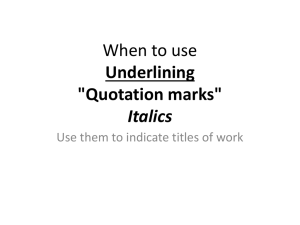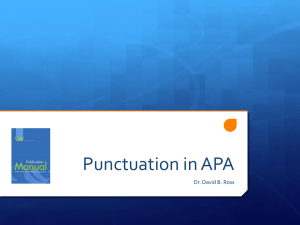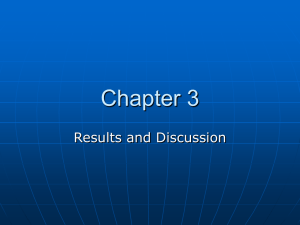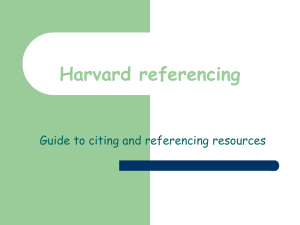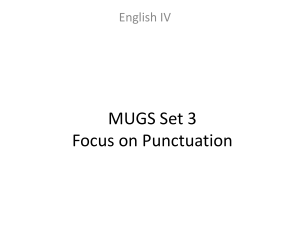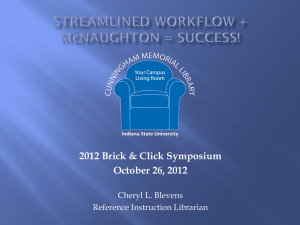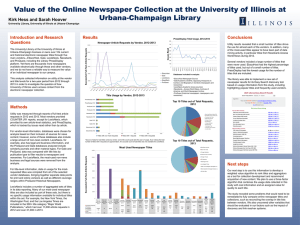Italics v. Underlining Powerpoint
advertisement
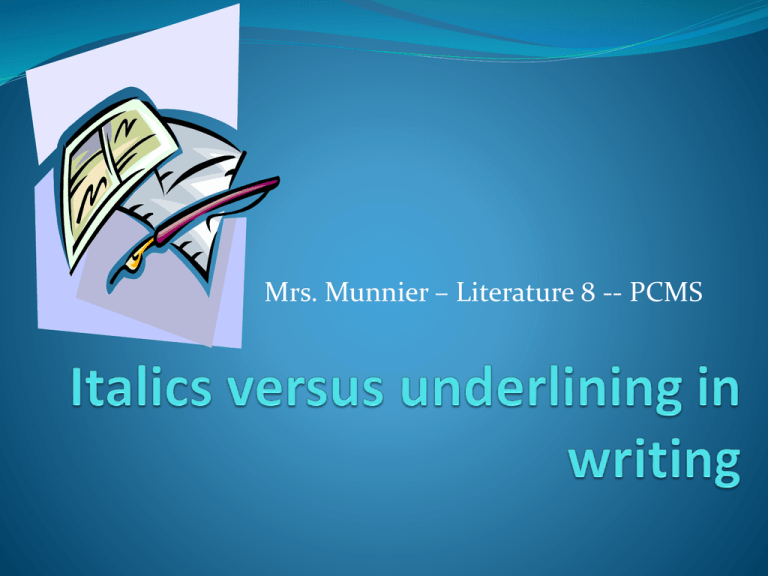
Mrs. Munnier – Literature 8 -- PCMS Titles of radio programs and television shows are also italicized or underlined, such as: Regularly aired radio shows such as NPR’s Car Talk or All Things Considered Television programs such as American Idol or even Monday Night Football Did you know that the titles of works of art are italicized or underlined, such as… Starry Night by Vincent Van Gogh… ? The titles of famous speeches are also italicized or underlined, such as... …Dr. Martin Luther King’s I Have a Dream or President Abraham Lincoln’s Gettysburg Address Long poems that are extensive enough to appear in books by themselves must be underlined or italicized, such as Homer’s the Iliad or the Odyssey… or Walt Whitman’s Leaves of Grass. Here’s more to remember, as if that isn’t enough… Always underline or italicized: The titles of specific vehicles (trains, planes, spacecraft, ships), such as: The Titanic, Polar Express, and the Challenger ITALICIZE foreign words, such as the Italian sotto voce. Do not, however, italicize foreign words or phases that have become so widely used and understood that they have become part of the English language, such as adios or bon voyage We use italics (characters set in type that slant to the right) to distinguish words in wordprocessed documents. We also use underlining to distinguish certain words – both in word-processed and hand-written documents You have known since elementary school that QUOTATION MARKS are used to offset material that represents quoted or spoken language. Quotation marks are also used to set off titles of things that do not normally stand by themselves, such as: Titles of short stories articles poems and songs In a written document, the use of italics or underlining mean the same thing. DO NOT use both within the same text. Stick to one or the other. If you are unsure, ask your instructor what he or she prefers. Italics do not include punctuation marks (end marks or parentheses, for instance) next to the words being italicized unless those punctuation marks are meant to be considered as part of what is being italicized: "Have you read Stephen King's Pet Semetary?” (The question mark is not italicize here.) When in doubt, just remember NOT to underline or italicize punctuation at the ends of sentences. We generally underline or italicize things that can stand on their own. Here’s some examples: Names of newspapers, such as: the New York Times or the Princeton Daily Clarion. Notice that the period after the previous sentence is not underlined. Notice also that the word “the” is not underlined, either. Titles of journals and magazines are underlined or italicized. For example: Time magazine… or Mad magazine… or Sports Illustrated... You get the idea. The titles of plays and movies are underlined or italicized… Such as Romeo and Juliet Or your favorite vampire movie… Like Twilight… The titles of long musical pieces are underlined or italicized, such as… Tchaikovsky’s Nutcracker Suite
